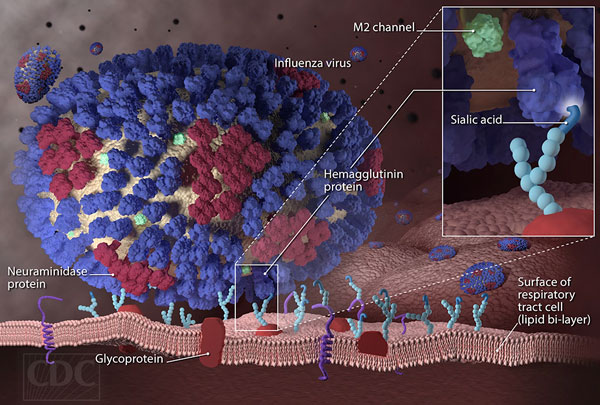 The Wellness Coalition has been partnering with organizations to provide flu vaccination information to communities in Macon, Montgomery, and Lowndes counties. Part of our work has included helping the Centers for Disease Control and Prevention (CDC) distribute priority information about current and upcoming plans for vaccine distribution, safety information, and more.
The Wellness Coalition has been partnering with organizations to provide flu vaccination information to communities in Macon, Montgomery, and Lowndes counties. Part of our work has included helping the Centers for Disease Control and Prevention (CDC) distribute priority information about current and upcoming plans for vaccine distribution, safety information, and more.
The best way to prevent flu and its potentially serious complications is by getting a yearly flu vaccine. Even when flu vaccination does not prevent illness entirely, it has been shown in several studies to reduce severity of illness in people who get vaccinated but still get sick.
CDC Director Rochelle P. Walensky, M.D., M.P.H. adopted the 2023-2024 Advisory Committee on Immunization Practices’ (ACIP) recommendations on annual influenza (flu) vaccination for everyone 6 months and older in the United States on June 27, 2023. There were small changes to the annual recommendations around flu vaccination, including an acknowledgment of the updated flu vaccine composition for the 2023-2024 flu season and a change in the recommendations for vaccination of people with egg allergies.
Dr. Walensky’s adoption of the ACIP recommendations makes them official CDC policy. Providers should begin vaccinating patients according to CDC’s recommended timing, which remains the same as last season.
Flu Vaccination Timing
The recommended timing of flu vaccination has not changed. September and October are the best times for most people to get vaccinated. CDC continues to recommend vaccination as long as flu viruses pose a threat. During some seasons, that can be as late as May or June. CDC has recommended annual vaccination for everyone 6 months and older since 2010.
Updated Flu Vaccine for 2023-2024
Flu viruses are constantly changing. The composition of U.S. flu vaccines is reviewed annually by the U.S. Food and Drug Administration Vaccines and Related Biological Products Advisory Committee and updated as needed to best match the flu viruses research indicates will be most common during the upcoming season. The 2023-2024 season U.S. flu vaccines will contain an updated influenza A(H1N1)pdm09 component:
- A/Victoria/4897/2022 (H1N1)pdm09-like virus for egg-based vaccines
- A/Wisconsin/67/2022 (H1N1)pdm09-like virus for cell-based or recombinant vaccines
How well flu vaccine works can depend in part on the match between the vaccine viruses and circulating viruses. Preliminary estimates show that last season, people who were vaccinated against flu were about 40% to 70% less likely to be hospitalized because of flu illness or related complications.
Flu Vaccines for People With Egg Allergies
The main change in the flu vaccine recommendations is related to giving flu vaccine to people with egg allergies. Most flu vaccines today continue to be produced using an egg-based manufacturing process, and therefore contain a small amount of egg proteins, such as ovalbumin. While ACIP has previously recommended that all people 6 months and older with egg allergy should be vaccinated for flu, in the past there have been additional safety measures recommended for administration of egg-based flu vaccine to people who have had severe allergic reactions to egg.
The ACIP voted that people with egg-allergy may receive any flu vaccine (egg-based or non-egg based) that is otherwise appropriate for their age and health status. Additional safety measures are no longer recommended for flu vaccination beyond those recommended for receipt of any vaccine.
Learn more about our work and available resources at thewellnesscoalition.org/flu.
